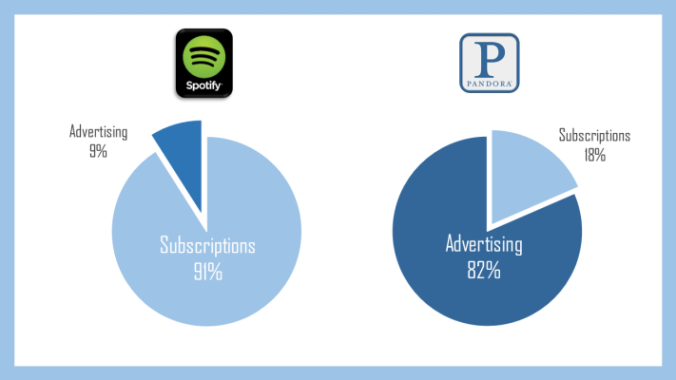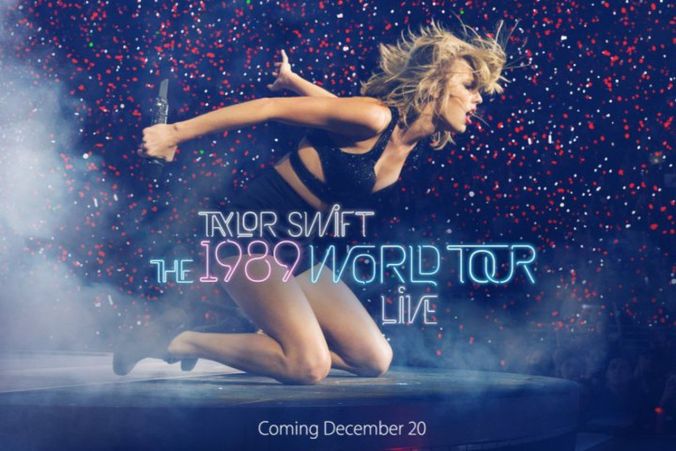Blog post by Sally Smith

Thanks to our digital devices, we are able to easily record and copy live music in order to be played back or shared with others. However, this has presented a major challenge for the music industry to compete with nowadays (SOURCE:// The Verge).
Music is all around us. It’s playing in the background at your local grocery store and in your earbuds at the gym. Sometimes you may not even register that music is playing and that’s because it is very much an integral, routine part of our days. So what is the appeal of music? Our favorite tunes can inspire and unite us. Music can bring out the positive side to us. It’s a form of communication that can peak our curiosity and evoke certain emotions and or thoughts. The first takeaway here is that music is powerful and because people enjoy it so much, they will do whatever it takes to listen to it in the easiest, quickest, and cheapest way possible.
Long gone are the days where CDs were the primary way of listening to music. Even, iPods are not as popular as they once were. And the telegraph, made by genius Thomas Edison, and the record-playing days seem ancient compared to the music-streaming services and digital devices we have today. Chances are you’ve heard of music streaming services such as, Pandora or Spotify. These Internet, music streaming services allow thousands of songs to be played anytime and anywhere there’s Wifi. There is a price to pay if you want commercial-free music and unlimited song skips; however, the small, monthly price is worth every penny for most.

This is a chart comparing Pandora’s versus Spotify’s features and services. So which streaming service is a better deal? (SOURCE:// The Christian Science Monitor).

This chart is illustrating that Pandora earns most of its revenue from advertising, meanwhile Spotify earns most of its revenue from subscription revenue. Overall, Spotify seems to be more robust and therefore, the better service to invest in (SOURCE:// The Street).
In Chapter 5 in John Vivian’s textbook, The Media of Mass Communication, on Sound Media, he discusses the file-swapping scandal that changed everything. Eighteen at the time, Shawn Fanning produced a audio-file swap program, which was dubbed Napster. Eventually, Napster had 25 million users who had access to 80 million songs on their hard drives for free (Vivian 124). No wonder the service was widely popular; who would want to pay $15 for a CD when you can get a plethora of songs for free? Fanning’s Napster greatly threatened the recording industry’s traditional business and economic model. Not surprisingly, the recording industry got word of Napster, sent the case to the court, and took down Fanning’s program on the conclusion that it was violating music copyrights. Then, along came Steve Jobs’ iTunes, which saved the recording industry.
How Artists Are Affected By Music Streaming
In a NY Daily News article from 2014, it was announced that country-pop star, Taylor Swift, has banned one of the music industry’s largest players, Spotify, from streaming any of her music. Swift made it clear that she believes streaming is essentially the same as piracy. Her actions have prompted other major artists to question music streaming services right to playing their music. Jimmy Buffett requested that Spotify pay him more and Radiohead’s Thom Yorke pulled his music from the company out of spite. Spotify openly admitted that “it pays its artists less than a penny per listen, compared to the 7 to 10 cents a singer will get from the purchase of a song for 99 cents on iTunes.” Artists are frustrated that they aren’t making the highest profit possible through these services; they feel as if they are being gypped. Artists aren’t pulling their music to bully the digital music services, rather they simply want to boost album sales and therefore, maximize profit. Who can blame them? Still, music listeners will continue to use music streaming services like Spotify and Pandora because of their attractive, convenient, and affordable models. In the first half of 2014, streaming increased by 42% from the year before, according to Nielsen/SoundScan. Whereas, song sales plummeted by 11% and full album sales were in a 19% free-fall in Fall 2014. Overall, we are continually moving into a streaming economy.

Taylor Swift, one of today’s most popular artists, banned Spotify from playing music from her “1989” album or any of her music, for that matter (SOURCE:// The Verge).
In an article on The Verge, there is discussion of how streaming services like Spotify and Pandora are “unbundling the record labels.” This is something streaming services are certainly interested in, as both the artist and service itself could keep much of the profit. However, record labels still provide a lot of great exposure that streaming services like Spotify could not. First, labels help artists create an image in the music world and get their songs on the terrestrial radio, where a huge amount of listening and music discovery still occurs. Additionally, they pay to make visually creative music videos and promote upcoming albums in every way possible. Still, Ben Popper, the writer of The Verge article, states of the powerful takeover of streaming companies today, “By providing a one-stop shop for distribution, monetization, audience research, marketing, and live event promotions, the streaming services are starting to stake a claim to a large part of what record labels have traditionally done.” Clearly, there is competition between the streaming services, the revolution they have produced, and the traditional music industry.
How Music Socializes
With constant, new developments in technology, there is no telling how we will be listening to music in the years to come. However, no matter the medium in which we listen to music, the final takeaway is that music socializes us and socialization is key in creating a unified society with similar values. Socialization, or learning to fit into society, through music and its messages are crucial to understanding the way in which we are expected to act in society (Vivian 346). We may forget this but music is a form of mass communication. The words in a song are written and recorded for a reason. Take the time to listen to the lyrics and see how they impact you and those around you. Music has the power to bring people together in good and bad times and no matter how we receive artists’ music, it is important to understand its role in our society.
Sources:
This was a very interesting blog post to read! It really hits home because I use spotify and other streaming services each and every day! I find it crazy to see how various music streaming companies make money but am not surprised that there are really only two different ways they can do it. Now that I see this model of making money how to music streaming companies survive if they don’t have advertisements or subscriptions? We all don’t like spending money in order to get what we want but we also all hate advertisements. In this day in age it is impossible to make people happy when it comes to making money and this blog post shows that. People always want to maximize their profits but that can be very challenging.
LikeLike
I found this post to be very informative and interesting! Like many people in todays world, music plays a huge role in lives. I found it very interesting how both Spotify and Pandora make money. I also found it very interesting when you talked about how Taylor Swift called Spotify “piracy”. Like many of us, we usually tend to listen to music that is free of charge or costs very little, and it was interesting to hear your take on that topic too. Music unites us in many ways whether we know it or not, and I liked how you mentioned that in your post! Very informative and fascinating to hear your thoughts and ideas!
LikeLike